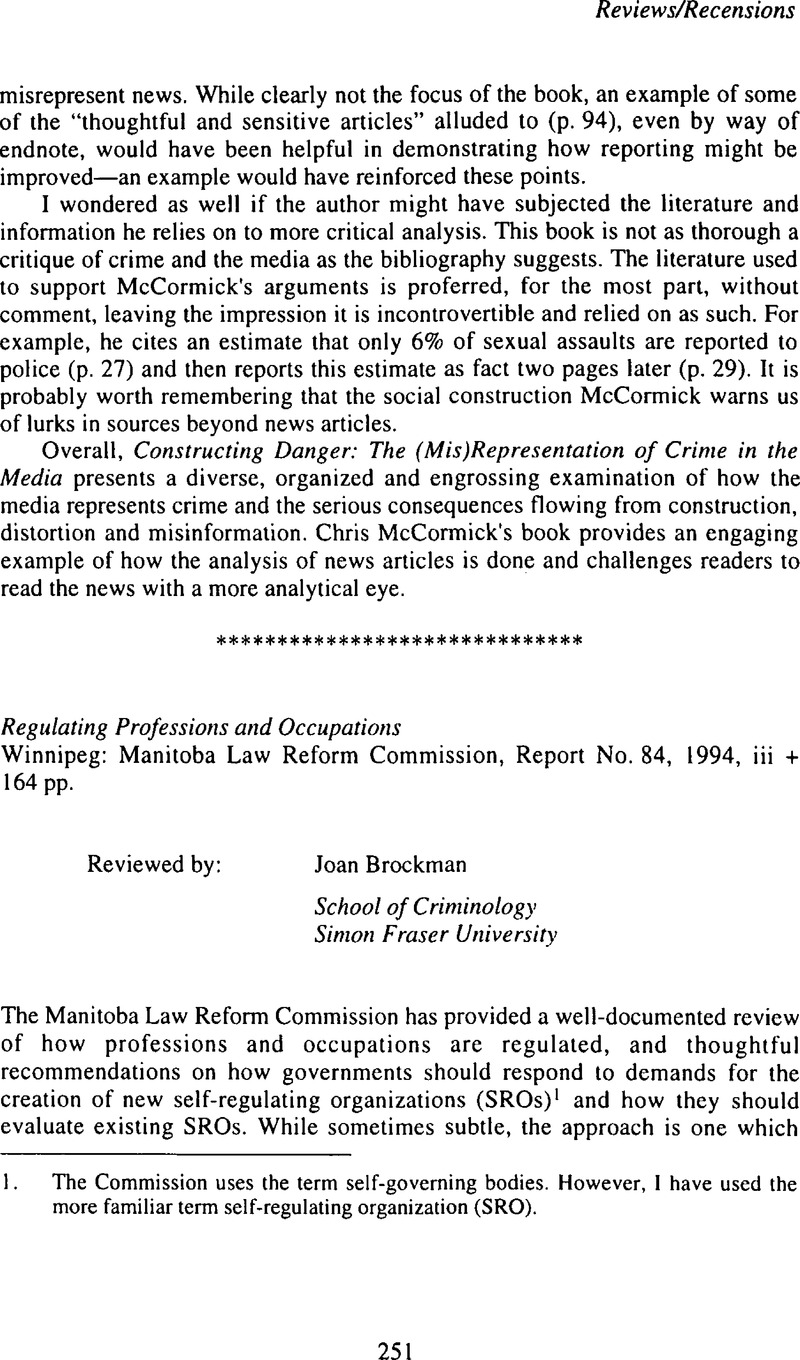No CrossRef data available.
Article contents
Regulating Professions and OccupationsWinnipeg: Manitoba Law Reform Commission, Report No. 84, 1994, iii + 164 pp.
Published online by Cambridge University Press: 18 July 2014
Abstract

- Type
- Reviews/Recensions
- Information
- Canadian Journal of Law and Society / La Revue Canadienne Droit et Société , Volume 10 , Issue 2 , Fall/automne 1995 , pp. 251 - 258
- Copyright
- Copyright © Canadian Law and Society Association 1995
References
1. The Commission uses the term self-governing bodies. However, I have used the more familiar term self-regulating organization (SRO).
2. The Commission rejects the use of the term “profession” in favour of “occupation” because the association of professionalism with self-regulation may “serve to obscure rather than enlighten” (p. 9).
3. Eliot Freidson has written extensively on the importance of formal bodies of knowledge (i.e. higher education) to achieve exclusive control over labour markets. See, for example, Freidson, Eliot, Professional Powers: A Study of the Institutionalization of Formal Knowledge (Chicago: University of Chicago Press, 1986.)Google Scholar More recently, Ann Witz has illustrated how systematic training and testing (located in professional schools or universities) have been used as strategies of occupational closure: Witz, Ann, Professions and Patriarchy (London: Routledge, 1992)CrossRefGoogle Scholar. Also see Larson, Magali Sarfatti, The Rise of Professionalism: A Sociological Analysis (London: University of California Press, 1977)Google Scholar.
4. The Commission notes that this dual purpose was suggested in 1968 by the Ontario Royal Commission Inquiry into Civil Rights.
5. I address this question in greater detail in a commentary on the Commission's Report: “Dismantling or Fortifying Professional Monopolies? A Comment on Regulating Professions and Occupations (1994)” Manitoba Law Journal [forthcoming].




